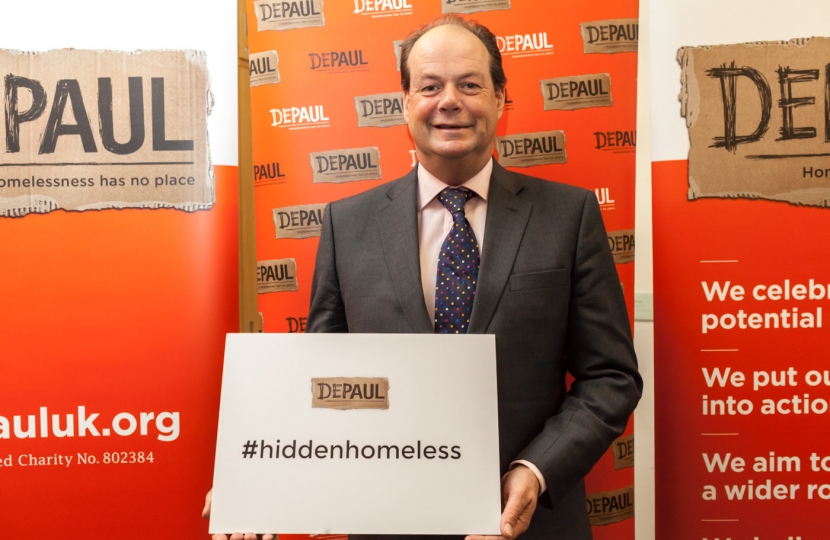
I attended the launch of the Depaul UK's Danger Zones and Stepping Stones report this week in Parliament, which exposes the issue of hidden homelessness among young people in England, addressed by Depaul UK’s President, broadcaster Sir Trevor McDonald.
The plight of young people with nowhere to call home is of great concern to me. At the event I had the opportunity to speak with young people who have experienced hidden homelessness: crashing on friends’ sofas or floors, staying with strangers, attending all-night parties and other risky ways of staying off the streets at night. I was very moved by their stories and am adding my voice to the call for a national debate on hidden homelessness.
In a packed room at Westminster, Sir Trevor McDonald said: “The young people interviewed for this report experienced very dangerous situations in their attempts to stay off the streets, including staying with random strangers while constantly in fear of assault, lodging with an uncle addicted to hard drugs, going to all-night parties with predatory males or suggesting ‘sleepovers’ to school friends simply to find a place to stay.
“These experiences are often termed ‘sofa surfing’, a phrase which does not adequately capture the high levels of risk young people are experiencing.”
He added: “This vital report is just the beginning: Depaul UK is making clear recommendations aimed at preventing young people from enduring these experiences and is today calling for a national debate on hidden homelessness.”
Depaul UK chief Executive Martin Houghton-Brown said: “We exist to make youth homelessness a thing of the past. Our report shows that one size does not fit all when helping young people who find themselves without a place to call home.
“No young person should have to stay in an unsafe place. In the report, we have developed the Danger Zones and Stepping Stones Model to help identify where the dangers lie and also the stepping stones to getting young people out of homelessness.”
Depaul’s report includes recommendations that policymakers and commissioners of homelessness services provide more preventative services, such as family mediation and short respite accommodation; ensure there is adequate young person-specific accommodation; increase the provision of emergency accommodation; take steps to reduce the stigma of homelessness, and boost the capacity of potential safe-and-secure temporary living hosts to help young people to escape homelessness.
The report, based on detailed interviews with young people facing homelessness, was supported by Garfield Weston Foundation and players of People’s Postcode Lottery.



